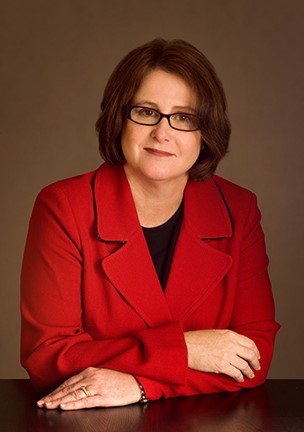This small cap biotech proves it is possible to have more women than men on a board

IMF managing director Christine Lagarde - not to be trifled with. Picture: Getty Images
What better time than International Women’s Day to highlight that is entirely possible to have more women in leadership roles?
Today, all around the world, people are recognising and celebrating womens’ achievements and working to knock down the barriers that still exist in the ongoing fight for gender equality.
One ASX-listed small cap biotech has proven it is possible to not only have women in leadership positions, but it is quite possibly the only ASX-listed company to have had an all-female board at one point.
Anatara Lifesciences (ASX:ANR) is chaired by Sue MacLeman – who is also the chair of ASX-listed Novita Healthcare (ASX:NHL) and the chair of not-for-profit federal government-backed organisation MTPConnect.

She is also a director on the boards of TPI Enterprises (ASX:TPE), Oventus Medical (ASX:OVN) and Victorian government-backed veski.
“I joined [Anatara] in September last year as chair, and up until the appointment of David Brookes just recently, we were actually an all-female board and it was interesting how quickly we got comments from the other side about the fact that we had a gender issue,” Ms MacLeman told Stockhead.
“It was an unusual thing that occurred just because of the circumstance, but I think it was the only ASX all-female board.”
Anatara now has three women and one man on its board.
Meanwhile, MTPConnect has three women and two men on the board.
But Ms MacLeman is the only woman on the boards of Novita, Oventus, and TPI.
>> See the stats recently published by Stockhead for yourself
“I do sometimes wonder if my chromosomes have helped me in securing those roles,” she said.
“I hope not. I hope that it’s the skill and expertise and the merit that I bring to those boards.
“I think in the sector, or right across actually, we’ve seen a number of companies move to have one [woman] director.
“I think that’s not good enough and there needs to be not only gender diversity, but broader diversity.”
Ms MacLeman said that about 10 years ago the biotech sector was ahead of the game in terms of the number of women CEOs and directors it had (she actually counted them at the time).
“At that stage it was about 10 per cent for the sector, which was pretty good when you compared it to the broader ASX200 and even to specific sectors,” she said.
But fast forward a decade and that hasn’t increased much.
“I think we were tracking a bit ahead of the curve for a little while then, but I think that we’ve probably not made as much progress as I would’ve liked to have seen,” Ms MacLeman said.
Strong female role models
One trend Ms MacLeman has noticed is that it tends to be the men that have been surrounded by strong working women who are the bigger advocates for women in leadership roles.
Ms MacLeman pointed to her husband Paul as one such example.
Mr MacLeman is chairman of AdAlta (ASX:1AD), which has two women on its board and a woman in the position of CEO.
“He chairs two other companies that have female CEOs and I think it’s when guys like that who have strong role models — so for example he had a working mother, he has a wife that works (me) and I have director positions — and he doesn’t get threatened by that, he can see the value and merit that has,” she said.
“I think as more of those people come through, you’re going to see it be a more merit-based appointment and I think some of that is generational.
“Paul is only in his early 50s and I think over the next 20 years we’re going to see more and more like him in chair roles appointing women in the sector.”
Ms MacLeman also pointed to the mentors she’s had over the years, most of which have been male.
“I’ve had two or three male mentors, including one who is still my mentor and probably has been my mentor for 20-odd years, and he certainly championed me onto boards and gave me opportunities and pushed me forward for things,” she explained.
“And I look at those mentors and in every single case they have got very strong partners who probably play into that thought process to some extent — capable women or partners that clearly these guys are very comfortable with having women in positions of responsibility and I guess to some extent power.”
- Subscribe to our daily newsletter
- Join our small cap Facebook group
- Follow us on Facebook or Twitter
Less talk, more action
While some just just pay lip service to the notion of attracting women to leadership positions and boards, MTPConnect in particular is actually putting its money where its mouth is.
MTPConnect is looking to increase diversity in general not just in terms of the number of women it employs, but its “guest of the chair” initiative will address both those issues.
“We’ve gone through a process recently at MTPConnect where we’ve got really good gender diversity on the board, there’s three women and two men, and that’s terrific but then we all looked around the table at each other and we’re all white and just over 50,” Ms MacLeman said.
“One of the things that we’re in the process of establishing is the guest of the chair.
“This is not a shadow or alternate director, but really is someone who is under confidentiality that probably has not had their first board role yet but has strong leadership capability for the sector and a good skillset.”
MTPConnect will conduct a competitive process to select someone to be the “guest of the chair” for potentially up to a year.
These candidates will get to shadow the chairperson, receive Australian Institute of Company Directors training or equivalent, gain exposure to the board process including decision making and strategic planning, and also learn about governance.
“So while we may not ever pick those people up onto our board, we’re hoping that having a program like that and having someone come in every six to 12 months in a rotation will start to create a group of people who are keen to be on a board, who have some experience of a board without having to be directly responsible,” Ms MacLeman explained.
“We’re hoping that additional experience we’re giving them will give them a competitive advantage to be able to put themselves forward for other board positions.
“If that works I will write a case study up and I intend to call on every board on the sector to do the same thing.”
Australia still a long way off
Australia’s first International Women’s Day was held in 1928 in Sydney — 17 years after the idea was first adopted in Europe.
Organised by the Militant Women’s Movement, women called for equal pay for equal work, an 8-hour working day for shop girls and paid leave.
We’ve come a long way since that time, but there is still a shortage of women in leadership roles.
You only have to look at the number of women Australia has in politics to see we are a long way behind.
Australia was ranked 20th in 2001 and nearly two decades later we rank 50th out of 193 countries, Queensland Premier Annastacia Palaszczuk said at the Brisbane International Women’s Day Breakfast on Wednesday.
“That’s not progress. In fact, that’s going backwards,” she said.
“I believe the best person should get the job regardless of gender but the disproportionate number of men in leadership roles shows women are not getting a fair go.”
UNLOCK INSIGHTS
Discover the untold stories of emerging ASX stocks.
Daily news and expert analysis, it's free to subscribe.
By proceeding, you confirm you understand that we handle personal information in accordance with our Privacy Policy.








